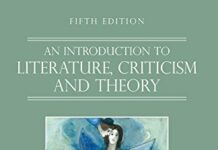
Ebook Info
- Published: 1999
- Number of pages: 288 pages
- Format: PDF
- File Size: 1.08 MB
- Authors: Andrew Bennett
Description
This 1999 book examines the way in which the Romantic period’s culture of posterity inaugurates a tradition of writing which demands that the poet should write for an audience of the future: the true poet, a figure of neglected genius, can be properly appreciated only after death. Andrew Bennett argues that this involves a radical shift in the conceptualization of the poet and poetic reception, with wide-ranging implications for the poetry and poetics of the Romantic period. He surveys the contexts for this transformation of the relationship between poet and audience, engaging with issues such as the commercialization of poetry, the gendering of the canon, and the construction of poetic identity. Bennett goes on to discuss the strangely compelling effects which this reception theory produces in the work of Wordsworth, Coleridge, Keats, Shelley and Byron, who have come to embody, for posterity, the figure of the Romantic poet.
User’s Reviews
Editorial Reviews: Review “Bennett examines how the Romantic period’s culture of posterity fostered a tradition of writing in which poets wrote to establish their identity for an audience of the future.” -M.S. Johnston, Choice”‘Romantic Poets and the Culture of Posterity addresses mostly authors and texts that have received extensive critical attention in the past; but, fittingly, by reorientating attention to them, the book makes them live in additional ways…the book should assure itself a long critical afterlife.” -Michael Wiley, The Wordsworth Circle”‘Bennett’s study ‘opens a window onto fascinating and vertiginous critical prospects.'” -Michael O’Neill, TLS”Andrew Bennett’s fascinating book grapples with theories of Romantic reception, both as those theories emerged and were simultaneously problematized in the period itself, and as they continue to influence our own readings of Romanticism today…Bennett is a pleasure to read. Clear, airy sentences and scrupulous signposting assist an involved and involving argument.” -Richard Marggraf Turley, The British Journal of Eighteenth-Century Studies”The strength of this book is its comprehensiveness. Bennett not only reads the expected poets and those, like Landon and Hemans, recently decanted into the canon; we also read about Henry Kirke White…and Isabella Lickbarrow. Its discussions are convincing, always aware of their larger implications for literary study and quite readable. Bennett is attuned to the ways in which his own – and our – reading is still caught up in the fantasy of posthumous fame.” -James Najarian, Romantic Circles”As is not infrequently true of fine-boned deconstruction, the scrupulous attention to the self-entwining possibilities of language lends at times an almost aesthete quality to the prose…Bennett is an extremely accomplished practitioner of his brand of dark interpretation.” -Seamus Perry, Review of English Studies Book Description This 1999 book offers a theory of reception governing Romantic poetry, through its culture of posterity – a tradition of writing which demands that the poet should write for an audience of the future: the true poet, a figure of neglected genius, can be properly appreciated only after death.
Keywords
Free Download Romantic Poets and the Culture of Posterity (Cambridge Studies in Romanticism) in PDF format
Romantic Poets and the Culture of Posterity (Cambridge Studies in Romanticism) PDF Free Download
Download Romantic Poets and the Culture of Posterity (Cambridge Studies in Romanticism) 1999 PDF Free
Romantic Poets and the Culture of Posterity (Cambridge Studies in Romanticism) 1999 PDF Free Download
Download Romantic Poets and the Culture of Posterity (Cambridge Studies in Romanticism) PDF
Free Download Ebook Romantic Poets and the Culture of Posterity (Cambridge Studies in Romanticism)


